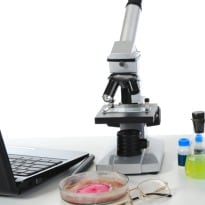Some of the food we consume is shared with microbes populating our digestive tracts and they promote the absorption of dietary fats in the intestine leading to metabolism in the body, a US study says.The new study from the University of North Carolina School of Medicine reveals some gut microbes increase the absorption of dietary fats, allowing the host organism to extract more calories from the same amount of food."This study is the first to demonstrate that microbes can promote the absorption of dietary fats in the intestine and their subsequent metabolism in the body," said senior study author John Rawls, associate professor of cell and molecular physiology at Carolina.
"The results underscore the complex relationship between microbes, diet and host physiology," said Rawls, the journal Cell Host & Microbe reports.Previous studies showed gut microbes aid in the breakdown of complex carbohydrates, but their role in dietary fat metabolism remained a mystery until now, according to a Carolina statement.The study was carried out in zebrafish, which are optically transparent when young. By feeding the fish fatty acids tagged with fluorescent dye, the researchers were able to directly observe the absorption and transport of fats in the presence or absence of gut microbes.The researchers pinpointed one group of bacteria - Firmicutes - as instrumental in increasing fat absorption.They also found the abundance of Firmicutes in the gut was influenced by diet: fish fed normally had more Firmicutes bacteria compared to fish that were denied food for several days. Other studies have linked a higher relative abundance of Firmicutes in the gut with obesity in humans."Our findings indicate that the gut microbiota can increase the host's ability to harvest calories from the diet by stimulating fat absorption," said the study's lead researcher, Ivana Semova, who was a graduate student at Carolina at the time the study was conducted.
"The results underscore the complex relationship between microbes, diet and host physiology," said Rawls, the journal Cell Host & Microbe reports.Previous studies showed gut microbes aid in the breakdown of complex carbohydrates, but their role in dietary fat metabolism remained a mystery until now, according to a Carolina statement.The study was carried out in zebrafish, which are optically transparent when young. By feeding the fish fatty acids tagged with fluorescent dye, the researchers were able to directly observe the absorption and transport of fats in the presence or absence of gut microbes.The researchers pinpointed one group of bacteria - Firmicutes - as instrumental in increasing fat absorption.They also found the abundance of Firmicutes in the gut was influenced by diet: fish fed normally had more Firmicutes bacteria compared to fish that were denied food for several days. Other studies have linked a higher relative abundance of Firmicutes in the gut with obesity in humans."Our findings indicate that the gut microbiota can increase the host's ability to harvest calories from the diet by stimulating fat absorption," said the study's lead researcher, Ivana Semova, who was a graduate student at Carolina at the time the study was conducted.
Advertisement








